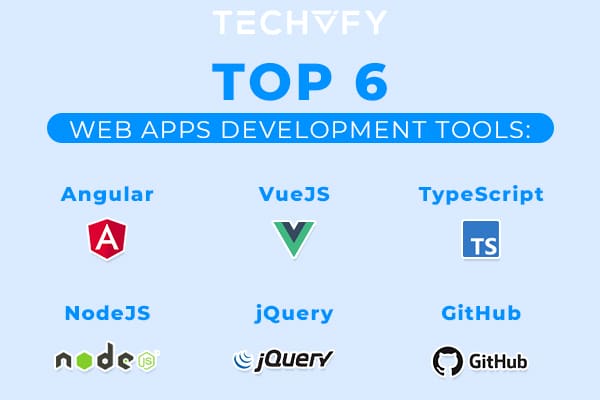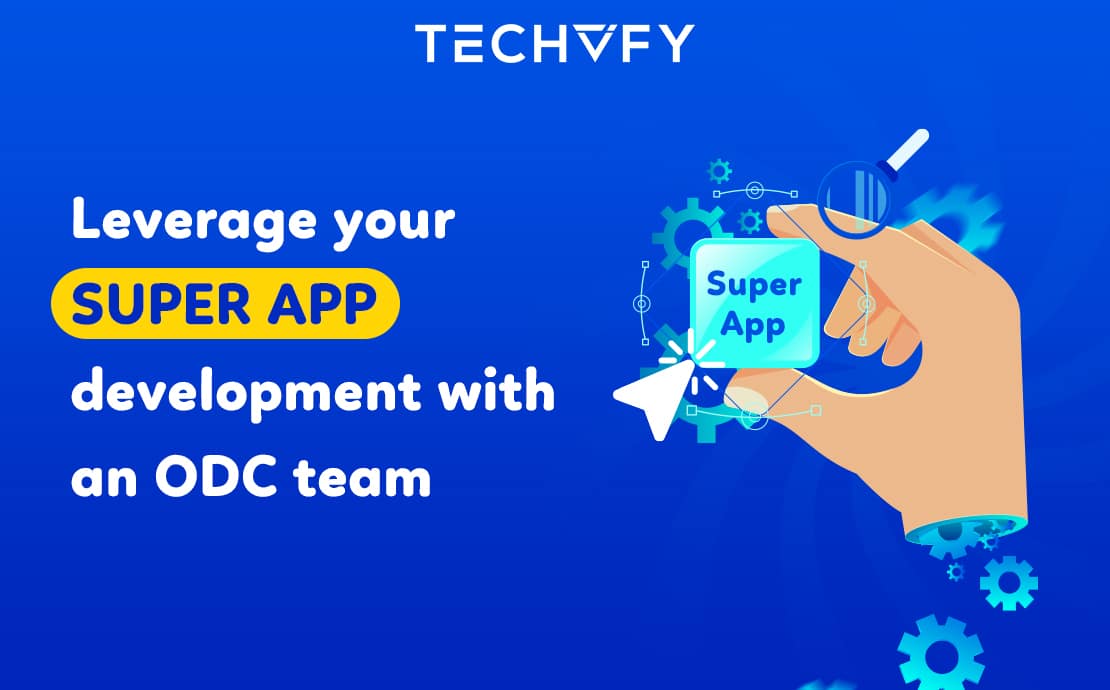Top 6 Best Web Apps Development Tools
- David Ho
- July 5, 2021
- Knowledge, Best practices, Guides
- 0 Comments
In this 4.0 era, a web app is one of the most popular concerns when businesses choose to go digitalized. However, enterprises should be acknowledged different web app development tools to decide which is the most suitable for their needs. Here are the top 6 most popular options.

1. Angular
Angular, or AngularJS, is a very popular JavaScript framework created and maintained by Google. This cross-platform tool is surprisingly beneficial to small and large business models. It can be used to build apps for web, mobile web, native mobile, and native desktop.
Moreover, Angular is one of the best Web app development tools. It is an open-source web application framework that allows you to express the behavior in a clean, readable format. Thus, because it is a plain old JavaScript object, your code will be reusable and easy to test and maintain.
2. VueJS
VueJS is also an open-source progressive JavaScript framework used to develop interactive web interfaces. It is used to simplify the web app development process. Not just for web interfaces, VueJS is also used for desktop and mobile app development. VueJS aims to provide a coherent, more “batteries-included” approach to offshore web app development by focusing on the view layer.
Thanks to its tiny size, readability, integration capabilities, and flexibility, VueJS is suitable for integration demand, dealing with prototypes, and keeping the focus on UI. Furthermore, it can also be easily integrated into big projects for front-end development without any issues.
3. TypeScript
TypeScript is an open-source front-end scripting language, a strictly syntactical superset of JavaScript. It is one of the best Web developer tools specially designed for the development of large applications and compiles to JavaScript. TypeScript can support any browser, any host, and any operating system. It is also portable across browsers, devices, and operating systems.
Thus, you can totally use the existing JavaScript code and call the TypeScript code from JavaScript. Therefore, it can run on any environment that JavaScript runs on.
With TypeScript, you will be able to gain insights into the existing behavior of JavaScript libraries. It provides the features of Type annotations and Compile-time type checking, Type inference, Type erasure, Interfaces, Enumerated types, Generics, Namespaces, Tuples, and Async/await.
4. NodeJS
NodeJS is an open-source, cross-platform to make real-time network applications. However, it is not a framework, it’s a server that executes JavaScript. NodeJS itself is not made in JavaScript completely, its wrappers are made in C.
NodeJS provides you with asynchronous, event-driven I/O APIs. It runs a single-threaded event-based loop, so all executions become non-blocking.
Furthermore, NodeJS is completely event-driven. Most of NodeJS’s code runs based on callbacks. This approach helps the web apps not to pause or sleep but stay available for other requests. Thus, NodeJS has a wrapper over this JavaScript engine, providing some extra facilities to build network applications. Because this wrapper is written in C language, it is really fast, much faster than Ruby, Python, or Perl.
5. jQuery
jQuery is a widely used JavaScript library created for simplifying HTML document traversal, manipulation, and Ajax. It empowers front-end developers to concentrate on the functionality of different aspects. Thus, it is also used for event handling and animation.
jQuery is also free and open-source, suitable for small to large businesses. This front-end web apps development tool provides a powerful theme mechanism with extensive browser support.
Moreover, jQuery is very stable and maintenance-friendly. It can be used with Chrome, Edge, Firefox, IE, Safari, Android, iOS, etc.
6. GitHub
GitHub is one of the best web app development tools that allow developers to review code, manage projects, and build software. It can be integrated with the tools you are using already, which will help you manage the projects. Thus, it can also be deployed as a self-hosted or cloud-hosted solution.
GitHub has the ability to coordinate easily, stay aligned, and get done project management tools. It is commonly used by developers for personal projects or to do experiments with new programming languages. For enterprises, it provides priority support such as Access provisioning, Invoice billing, Advanced auditing, Unified search, Contribution, etc.
Summary
In summary, there are plenty of tools for enterprises to choose from. However, depending on the requirements, coding skills, and IT facilities, businesses can use different tools to develop their web apps. Hope this article has provided you with more detailed information about each tool for your future decisions.

At TECHVIFY, we have a team of professional web app developers who can suggest and develop the best web app for your company. So, if you are looking for offshore development company, look no further cause TECHVIFY is fully capable of being one of the most competitive options.





